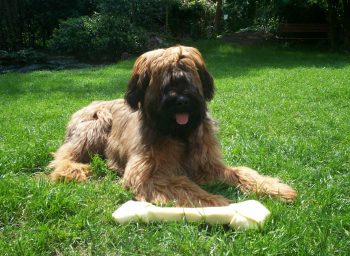The image of a dog burying a bone is as iconic as it is, capturing the essence of canine behaviour that has puzzled and delighted owners for generations. This act, far from being a mere whimsical habit, is steeped in the evolutionary history and survival instincts of dogs. Understanding why dogs bury their bones requires delving into their ancestral past, examining their instincts, and considering the psychological and environmental factors that influence this behaviour. It’s a fascinating blend of instinct, strategy, and adaptation that reveals much about the complex nature of our canine companions. By exploring the reasons behind this behaviour, we can gain insight into the evolutionary pressures that have shaped dogs over millennia, offering a glimpse into the survival mechanisms that persist in domestic dogs today.
Preservation of Resources
One of the primary reasons dogs bury their bones is rooted in the instinctual drive to preserve resources. In the wild, food can be scarce, and the ability to save excess food for later is a valuable survival strategy. By burying bones, dogs mimic the behaviour of their ancestors, who would hide food to ensure they had a reserve during times of scarcity. This behaviour is driven by an instinct to secure food in a safe place, away from potential thieves or competitors. Even in the comfort of a modern home, where food is plentiful, this ancient instinct persists, compelling dogs to bury their bones to safeguard their precious resources for future consumption.
Territorial Marking
Burying bones is also a way for dogs to mark their territory. The act of burying something valuable, such as a bone, in their designated area signals other animals about the boundaries of their domain. The scent markers left behind through saliva and paw pads during the burying process reinforce the dog’s claim to the area. This behaviour is a throwback to their wild ancestors’ need to establish and maintain territories, an essential aspect of their social structure and survival. Even in domestic settings, the instinct to define and defend territory through various means, including burying bones, is a strong driving force behind canine behaviour.
Natural Foraging Instinct
The foraging instinct is another critical factor that drives dogs to bury their bones. In the wild, dogs are natural foragers, constantly exploring their environment for food. Burying bones taps into this instinctual behaviour, providing a form of mental stimulation and engagement with their surroundings. Planting and later recovering bones simulates the foraging process, offering a satisfying challenge that fulfils their innate need to search for and secure food. This behaviour entertains and occupies dogs and serves as a mental exercise, stimulating their cognitive functions and satisfying their deep-rooted foraging instincts.
Anxiety and Stress Relief
For some dogs, burying bones can be a way to cope with anxiety or stress. The repetitive behaviour, including the digging and careful placement of the bone, can have a calming effect, distracting from stressful stimuli or boredom. This coping mechanism allows dogs to focus their energy on a task, providing a sense of purpose and relief from anxiety. The behaviour can be particularly prevalent in dogs that experience separation anxiety or those that do not receive adequate physical and mental stimulation, highlighting the importance of understanding and addressing the underlying causes of stress in pets.
Play and Entertainment
Lastly, burying bones can be a play and entertainment for dogs. The digging process and the challenge of finding the perfect spot to hide their treasure can be delightful activities, offering physical exercise and mental engagement. This playful behaviour is a healthy expression of their instincts and provides an outlet for their energy and creativity. It’s a reminder of the joy and curiosity that characterizes dogs and their capacity for finding amusement in simple activities, reinforcing the bond between dogs and their owners through shared play and interaction.
The behaviour of dogs burying their bones is a multifaceted phenomenon encompassing survival instinct, territorial marking, natural foraging behaviour, anxiety relief, and playful engagement. This intriguing habit offers valuable insights into the evolutionary background of dogs, reflecting the complex interplay of instincts, emotions, and environmental factors that influence canine behaviour. By understanding why dogs bury their bones, we can better appreciate the depth of their intelligence and emotional lives, fostering a deeper, more empathetic relationship with our beloved canine companions. Recognizing and respecting these natural behaviours is critical to providing a nurturing and stimulating environment for dogs, ensuring their well-being and happiness.
The post The Mystery Behind Why Dogs Bury Their Bones appeared first on iHeartDogs.com.

